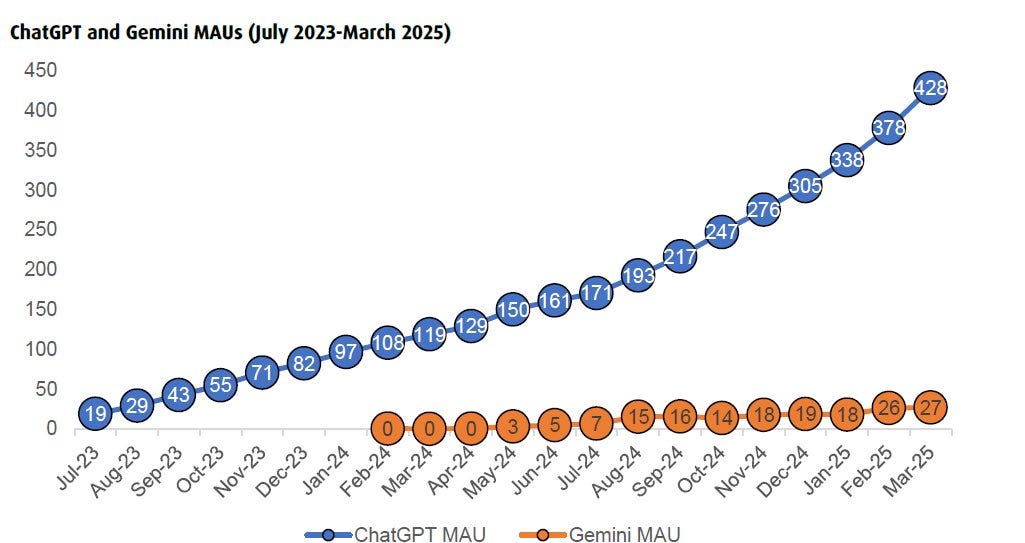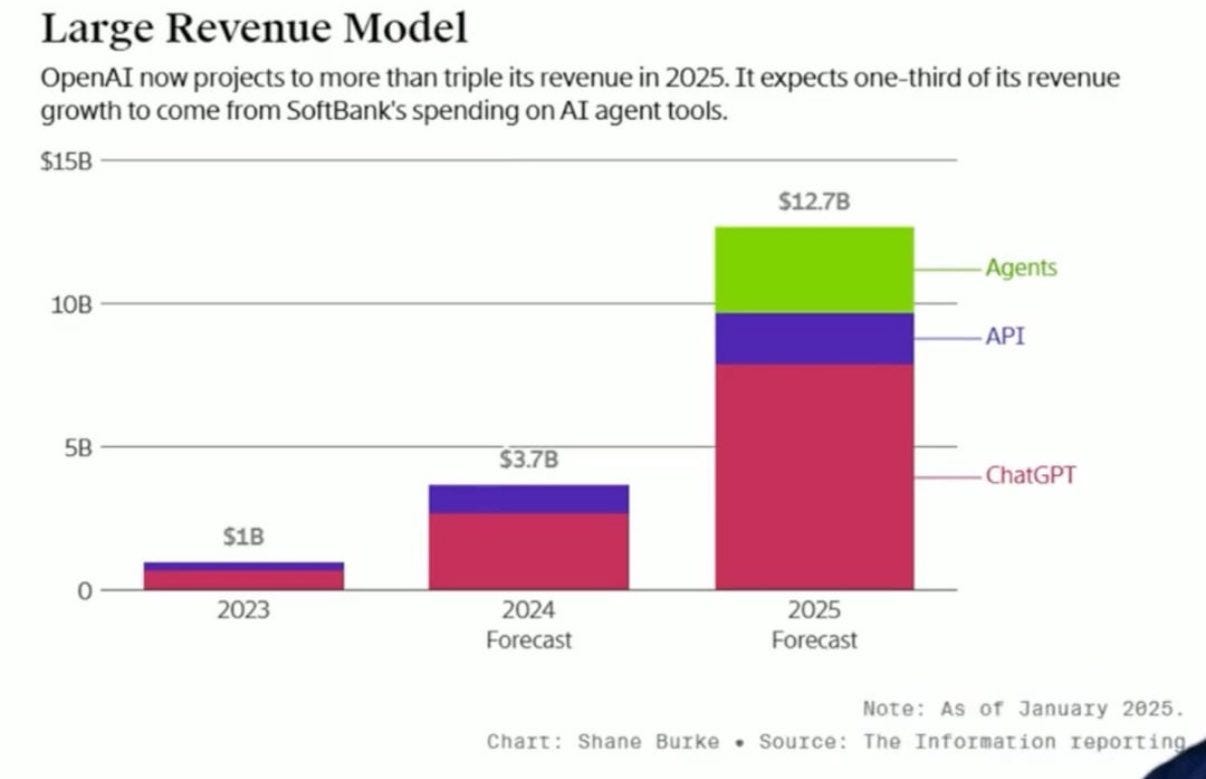ChatGPT's Shopify integration to transform online shopping 🤖🛍️; Coinbase & PayPal unite to reshape payments with stables 🤝🪙; AI allows smaller FinTechs to punch above their weight 🥊🤖
You're missing out big time... Weekly Recap 🔁
👋 Hey, Linas here! Welcome back to a 🔓 weekly free edition 🔓 of my daily newsletter. Each day, I focus on 3 stories that are making a difference in the financial technology space. Coupled with things worth watching & most important money movements, it’s the only newsletter you need for all things when Finance meets Tech.
If you’re not a subscriber, here’s what you missed this week:
The Ultimate List of Resources about AI Agents 🤖 [unlock the power of AI Agents: your gateway to the future of autonomous agentic systems]
AI Must-Reads: The Essential Guide to Winning in the Age of Intelligent Transformation 📚🤖 [360+ pages of must-read AI reports transforming today's leaders into tomorrow's visionaries]
The Ultimate List of Stablecoin Use Cases 🪙 [discover how stablecoins are quietly revolutionizing finance, business, and daily life across industries]
Agentic AI Playbook for Finance 🤖💸 [a field‑ready reference for product, engineering, and risk teams building autonomous agents in FinTech 📚]
Revolut’s profit machine reaches escape velocity with 72% revenue surge and 149% profit growth in 2024 🤯🚀 [deep dive into their 2024 annual report, breaking down the most important numbers, what they mean & why you should be bullish on Revolut + lots of bonus reads inside]
Circle wants to revolutionize global money transfers with its stablecoin payment network 👀🪙 [what it’s all about here & what’s the USP + bonus deep dives into Circle’s IPO & a list of 110+ real-world use cases of stablecoins]
Crypto giants are pursuing banking charters in major financial system integration play 😳🏦 [what’s the rationale here for Circle, Coinbase, BitGo, etc., what it means for the future of FinTech + bonus deep dives into BoA, JPMorgan, Circle, and others]
Bank of America Delivers robust Q1 2025 growth amid economic uncertainty 📈🏦 [unpacking the most important numbers, what they mean & what’s next for BoA + bonus deep dive into JPMorgan & their latest financials]
Citi's transformation bearing fruit: strong Q1 performance signals turnaround progress despite global uncertainty 📈🏦 [deep dive into their Q1 2025 financials unpacking the most important numbers, what they mean & what’s next for Citi + bonus deep dives into JPMorgan, Bank of America & co]
Europe's Top 1,400+ VC & PE Firms to Accelerate Your Startup Funding 🇪🇺💶 [your ultimate directory to high-impact investors, tailored funding, and explosive growth opportunities ]
Global 6,200+ Investor Database to Fast-Track Your Funding in 2025 💸 [shorten your fundraising time, find your perfect investors, and close rounds faster]
As for today, here are the 3 fascinating FinTech stories that are changing the world of financial technology as we know it. This was yet another wild week in the financial technology space, so make sure to check all the above stories.
From Chat to Cart: ChatGPT's Shopify integration set to transform online shopping 🤖🛍️
The news 🗞️ Multiple independent code analyses have recently revealed that OpenAI appears to be on the verge of introducing native Shopify-powered shopping directly within ChatGPT conversations.
Code strings discovered in ChatGPT's production bundle include elements like "buy_now," "price," "shipping," "product_offer_ratings," and most tellingly, "shopify_checkout_url," indicating a formal partnership between the two companies.
Let’s take a closer look at this, see why it could be huge, and what’s next for Shopify, e-commerce, and FinTech as a whole.
More on this 👉 Unlike the 2023 Shop plugin, which merely provided catalog links, the new integration would enable users to complete purchases entirely within ChatGPT through Shopify's SHOP 0.00%↑ Shop Pay checkout system. This transforms the AI assistant from a product discovery tool into a comprehensive shopping channel with integrated payment processing.
And that’s a match made in heaven 👏
For Shopify's 2.2 million merchants, this integration represents instant access to ChatGPT's estimated 800 million monthly users without requiring additional technical work.
For OpenAI, it offers revenue diversification through potential commissions and a more engaging user experience. Consumers would benefit from a streamlined "one-sentence shopping" experience, allowing them to describe exactly what they need and complete purchases without leaving the conversation.
Zoom out 🔎 We may see a limited rollout to ChatGPT Plus and Team subscribers as early as May-June 2025, with broader implementation following later in the year. The feature would likely appear alongside recently added modules like weather and market data in ChatGPT's answer panel.
This development follows similar moves by competitors, with Microsoft MSFT 0.00%↑ launching its Copilot Merchant Program on April 18, 2025, and Perplexity introducing its "Buy with Pro" feature last November.
✈️ THE TAKEAWAY
What’s next? 🤔 First and foremost, this partnership represents a significant strategic shift in e-commerce, positioning conversational AI as a primary shopping channel rather than just a discovery tool. For Shopify, it aligns brilliantly with CEO Tobi Lütke's recently leaked April 7 memo directing staff to "hire an AI before you hire a human," underscoring the company's commitment to AI-driven commerce. Looking at the bigger picture, as AI shopping assistants become more prevalent, we may see fundamental changes in the financial technology sector. Here’s what you need to start thinking about:
Payment Processing: The integration of AI with payment systems will likely only accelerate, creating demand for more sophisticated fraud prevention and authentication methods specifically designed for conversational commerce.
Consumer Data Analytics: The convergence of shopping intent data with conversational context will create new opportunities for personalization but also heighten privacy concerns, potentially driving innovation in privacy-preserving analytics.
Merchant Acquisition Strategy: Financial service providers may need to recalibrate their approach to merchant acquisition, as visibility in AI interfaces becomes as crucial as SEO has been for web commerce.
Looking ahead, we could see rapid development of a specialized ecosystem of services designed to optimize merchant performance in AI shopping channels, similar to what occurred with social commerce. That said, financial institutions should prepare for this shift by developing AI-native payment solutions and exploring partnerships with conversational AI platforms to ensure they remain relevant in this emerging paradigm of commerce.
ICYMI: Shopify’s Q4 2024: a commerce & FinTech powerhouse is hitting its profitable stride while maintaining hypergrowth 😤🛍️ [deep dive into their latest financials, breaking down key numbers, what they mean & why you should be bullish on Shopify in 2025]
Coinbase and PayPal unite to reshape digital payments with stablecoins 🤝🪙
The news 🗞️ Two finance titans Coinbase COIN 0.00%↑ and PayPal PYPL 0.00%↑ just announced a significant expansion of their partnership, aiming to accelerate the adoption of cryptocurrency-based payments through PayPal's stablecoin, PYUSD.
This strategic alliance represents another major push to bring blockchain technology into everyday financial transactions.
Let’s take a quick look at this and why it matters.
More on this 👉 Coinbase will eliminate fees for conversions between USD and PYUSD for both retail and institutional customers. Additionally, Coinbase users will now be able to redeem PYUSD directly for USD on the platform, a capability previously requiring transfer to PayPal or Venmo.
The integration will extend stablecoin infrastructure support to PayPal's extensive merchant network, potentially allowing businesses to settle transactions directly in PYUSD rather than through traditional banking channels.
Zoom out 🔎 Despite launching in 2023, PYUSD has secured less than 1% of the stablecoin market with a market capitalization of approximately $860 million. The stablecoin landscape remains dominated by Tether's USDT (66.5%) and Circle's USDC (28.3%).
However, the overall stablecoin market has demonstrated remarkable growth, with transaction volumes surging from $6.2 trillion in 2023 to $22 trillion in 2024. Analysts at Standard Chartered project the sector could reach $2 trillion in market capitalization by 2028, up from the current $238 billion.
Coinbase CEO Brian Armstrong highlighted that PayPal's network of more than 430 million consumers and merchants "offers an unprecedented opportunity to increase stablecoin adoption globally." Both companies emphasize their commitment to exploring innovative applications for PYUSD in decentralized finance and other blockchain platforms.
✈️ THE TAKEAWAY
What’s next? 🤔 At the core, this partnership represents another significant milestone in the mainstreamification of cryptocurrency-based payment systems. As regulatory frameworks for stablecoins advance in the U.S., with Congress expected to enact legislation by Q3 2025, established financial institutions are strategically positioning themselves in this evolving landscape. The elimination of conversion fees could thus substantially accelerate PYUSD adoption, potentially challenging the dominance of USDT and USDC. For PayPal, this initiative complements its recent introduction of a 3.7% annual yield on PYUSD holdings and demonstrates its commitment to remaining competitive in the evolving payments sector. Looking at the bigger picture, this collaboration signals that the line between traditional fintech and cryptocurrency infrastructure continues to blur. As major financial institutions embrace blockchain-based payment rails, we can expect increased competition among stablecoin issuers, with potential benefits for consumers in the form of reduced fees, faster settlements, and enhanced cross-border payment capabilities. Of course, the success of this initiative may ultimately hinge on regulatory developments and merchant adoption. If PayPal can leverage its extensive network to drive PYUSD usage in everyday transactions, this partnership could mark a pivotal moment in the transition from speculative cryptocurrency use cases to practical financial utility. Watch this closely.
ICYMI: PayPal expands its advertising platform to the UK 🇬🇧🛍️ [why it matters & what to expect next + bonus deep dive into PayPal]
Coinbase’s Q4 2024: solidifying platform play for the mainstreamification of digital assets 🪙📈 [breaking down their latest numbers, what they mean, and what’s next for Coinbase + bonus deep dive into its rival Robinhood]
AI empowers smaller financial institutions to punch above their weight 🥊🤖
Following the trends 📈 Recent case studies by Tearsheet demonstrate that artificial intelligence isn't just for banking giants. Two smaller financial institutions have successfully implemented AI solutions to enhance core business functions, proving that size is no barrier to technological innovation in finance.
Let’s take a quick look at this and see what lessons can be learned here.
More on this 👉 Commonwealth Credit Union faced competitive disadvantages against larger banks due to their manual underwriting processes. These traditional methods were time-consuming, relied on limited data points, and prevented the credit union from quickly processing loan applications or effectively managing risk across their portfolio. Their teams struggled to convert extensive customer and market data into actionable insights.
By implementing LuLu Pulse by Zest AI, Commonwealth transformed their lending operations. The AI solution enabled leadership and analytics teams to benchmark performance against competitors and rapidly adjust strategies. Decision-making time decreased significantly, allowing the credit union to extend more loans while maintaining appropriate risk management protocols.
Similarly, Duke University Federal Credit Union confronted resource limitations that hindered their marketing capabilities. With a small team, they found it challenging to create personalized, compliant marketing content that maintained brand consistency.
Their solution came through COMPOSE by Vertice AI, which learned the credit union's distinctive brand voice while ensuring regulatory compliance. The marketing team could then produce customized, on-brand content more efficiently, reducing their dependence on external services. The AI tool also enhanced campaign targeting and segmentation, enabling the team to concentrate on member growth and engagement-driving content.
✈️ THE TAKEAWAY
What’s next? 🤔 First and foremost, these success stories signal a potential democratization of financial technology. As AI tools become more accessible and purpose-built for specific financial functions, the traditional advantage of scale that larger institutions have enjoyed may diminish. We can thus expect more specialized AI solutions targeting specific operational challenges faced by smaller FIs. Vendors will likely develop modular, cost-effective AI implementations that don't require the massive infrastructure investments traditionally associated with financial technology transformation. Of course, this trend comes with responsibilities. As AI adoption accelerates across institutions of all sizes, regulatory scrutiny will intensify. Financial institutions must prioritize transparency in how they implement AI, particularly in customer-facing processes like lending decisions and marketing. The most successful implementations will maintain the critical balance between automation and human oversight. Zooming out, while AI can process data at unprecedented scale and speed, human judgment remains essential for handling exceptions, maintaining ethical standards, and ensuring fair outcomes for customers across diverse circumstances. At least for now.
ICYMI:
🔎 What else I’m watching
Alipay Introduces MCP Server 💳 Alipay has launched its Model Context Protocol (MCP) server, allowing merchants and AI developers to integrate Alipay payment services using natural language through MCP clients or AI agents. The MCP server supports mobile and web integration, enabling users to make payments, check statuses, and initiate refunds with simple commands. This standardizes AI interactions with data sources and tools, enhancing efficiency and functionality for AI agents. ICYMI:
Investing.com Launches WarrenAI 🤖 Investing.com has introduced WarrenAI, an AI-driven financial researcher designed to bridge the gap between Wall Street traders and retail investors. WarrenAI combines the ease of use of ChatGPT with premium market data, offering real-time insights and analysis across 72,000 financial instruments in over 30 languages. This tool provides SWOT analyses, market summaries, and advanced stock screeners, empowering retail investors to make informed decisions quickly. ICYMI:
River Acquires Wind for Super App 🌍 River has acquired Wind, a decentralized payments and banking platform, to create a super app for global citizens. The app integrates telecommunications, payments, and banking services, offering lower fees and borderless financial tools. Led by founders from River, Lunchbox, and Pathao, River aims to serve 1 billion users worldwide, focusing on diaspora populations and enterprise partnerships. The company has achieved profitability and rapid growth, with a valuation between $100 million and $200 million.
💸 Following the Money
Swedish embedded finance player Froda has secured €20M in Series B financing to fuel its European expansion and provide more SMEs with financing.
Embedded payroll infrastructure provider Salsa has raised $20M in a Series A funding round led by Altos Ventures.
London-based Damisa, a cross-border stablecoin payments platform, raised £2.25M in pre-seed funding.
👋 That’s it for today! Thank you for reading and have a relaxing Sunday! And if you enjoyed this newsletter, invite your friends and colleagues to sign up:









Good read 👏🏼
this is a goldmine - thank you for putting all this effort. Daily.